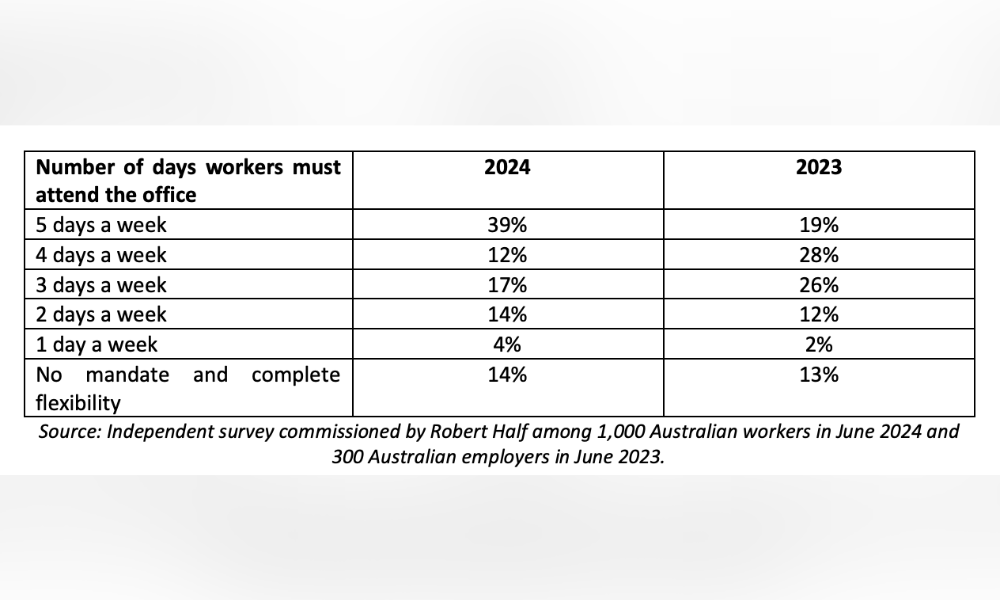
Working from home becoming 'anomaly rather than an expectation'

The number of Australians under a full-time office return has increased this year, much to the dissatisfaction of the workforce, according to a new report.
Robert Half's latest poll among 1,000 Australian workers found that 39% have been asked to return five days a week in the office, up from the 19% in 2023.
A full-time office return is now the most prominent arrangement among Australian workplaces, surpassing the four-day in-office mandate last year, according to the report.

Andrew Brushfield, director at Robert Half, said the findings indicate that the "pendulum is swinging back to pre-pandemic levels where working from home was an anomaly rather than an expectation."
"Staff are attending the office more than they have since the pandemic as many employers have taken the opportunity of a job market with less candidate leverage to request their employees to come back to the office," Brushfield said in a statement.
The director, however, noted that not all employees are pleased with employers' move to steer away from remote and hybrid work.
Nearly eight in 10 employees (79%) are satisfied with their in-office days, and dissatisfaction increases the more time they're requested on-site, according to the report.
It found that workers who report four or five days a week are the most unsatisfied, with 23% saying they're not happy with the mandate. This unsatisfaction drops to eight per cent and 15% among those requested onsite for one or two days a week, respectively, the report revealed.
Despite not being happy over more onsite days, the report found that 91% of office workers understand the benefits of working in the office. They cited the following advantages to onsite work:
On the other hand, 84% said there are still negative effects of in-office work, including:
"Mandated office days can be a double-edged sword for workers. While they foster collaboration and connection, they can also lead to resentment and disengagement if not implemented and justified thoughtfully," Brushfield said.
"Even with staff coming to terms with attending the office more frequently, the key for employers is to create an environment that highlights the positives of in-office work and sparks joy, not dread."